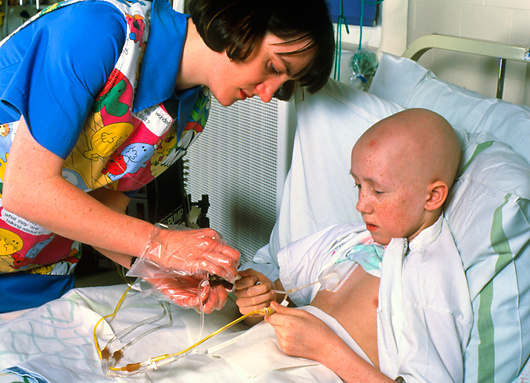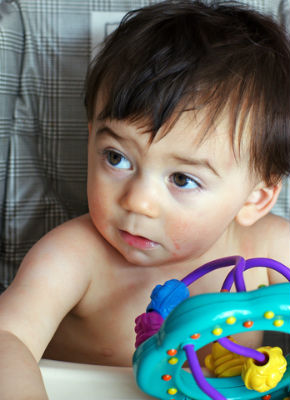Skin Symptoms course



This session covers the investigation and treatment of skin symptoms for children receiving palliative care.
Learning Objectives
By the end of this session you will be able to:
- Describe the process you should use when investigating skin symptoms
- Recognise different types of skin rash
- Consider differential diagnoses
- Select appropriate treatment
- State how to deal with pressure sores and ulcerating (fungating) tumours
In this session, we will take the example of a child with a malignancy who presents with an itchy, red rash to understand the process you should follow when investigating skin symptoms.
Before commencing this session you should complete:
- Pain Management (172-43)
Helen has been working in Paediatrics for over 30 years and has been a Consultant Paediatrician at Heart of England NHS Foundation Trust since 1995. She is a General Paediatrician with a special interest in Paediatric dermatology. She is an educational supervisor for trainees in Paediatrics, the Foundation years and broad based training.
She has a strong interest in Medical Education and is an Associate Postgraduate Dean in the West Midlands for careers, less than fulltime training and professional support. She has also been Head of the School of Paediatrics in the West Midlands since the postgraduate Schools were set up in 2007. She is strongly committed to improving the standard of training and ensuring that assessments are fair and performed well. She enjoys teaching and undertakes this on a variety of courses either in Paediatric Dermatology or medical education. She has a number of publications on these topics in peer reviewed journals. Helen has a MD which looked at herpes simplex virus infections in children with atopic eczema, a Master’s degree in Medical Education and a MA in Managing Health Care careers (distinction) which looked at the Wellbeing of Foundation year one doctors.
Helen worked less than fulltime for 11 years, training less than fulltime under the PM(79)3 scheme in the early 1990s and then took up a part time consultant post. She was the RCPCH advisor for LTFT training 2003-9 and chaired the Improving Working lives committee 2005-7. Since 2012, she has been the RCPCH lead for the Effective Educational supervisors course ,drew up and developed the material and this course is now taught nationally several times per year. Helen has written modules on paediatric dermatology for elearning for healthcare, developed 5 elearning modules for Health Education West Midlands which are currently being revised for e-lfh and leads the team developing 25 e learning modules on Paediatric SCRIPT (prescribing).


- Anaesthesia Fundamentals | Physiology | Physiology...
- Posted By eIntegrity Healthcare e-Learning
- Posted Date: 2024-12-26
- Location:Online
- This session covers the physiology of exercise including the role of cardiopulmonary exercise (CPX) testing.
- Anaesthesia | Paediatrics | Appendicectomy and Lap...
- Posted By eIntegrity Healthcare e-Learning
- Posted Date: 2024-12-26
- Location:Online
- This session explains the key components relevant to the anaesthetist in the perioperative management of a child undergoing urgent appendicectomy and laparotomy.
- Anaesthesia | Paediatrics | Postoperative Fluid Ma...
- Posted By eIntegrity Healthcare e-Learning
- Posted Date: 2024-12-26
- Location:Online
- This session describes postoperative fluid management in children and the clinical response to specific conditions which may arise.
- Anaesthesia | Paediatrics | Anaesthesia for a Chi...
- Posted By eIntegrity Healthcare e-Learning
- Posted Date: 2024-12-26
- Location:Online
- This session will outline the principles of anaesthesia for children with cerebral palsy presenting for elective surgery. It will cover how the severity of cerebral palsy directly affects the techniques chosen
- Anaesthesia | Paediatrics | Monitoring and Titrati...
- Posted By eIntegrity Healthcare e-Learning
- Posted Date: 2024-12-26
- Location:Online
- The aim of this session is to put your theoretical knowledge to practical use, by working through a series of scenarios relating to fluid management in children.







